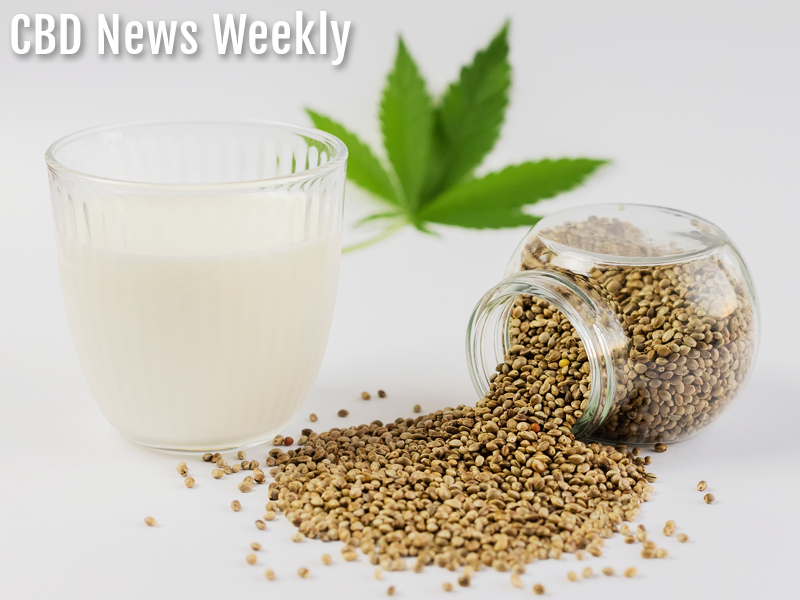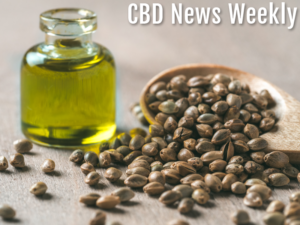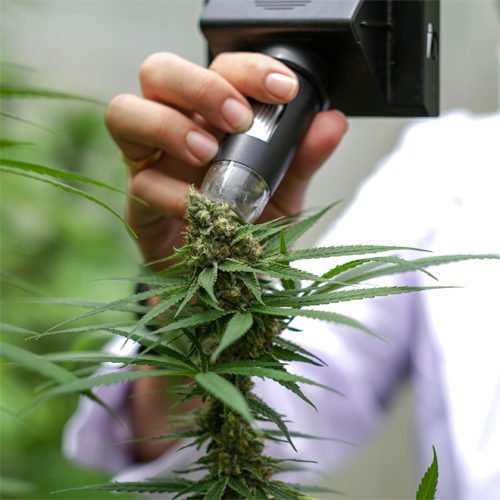Common Hemp Foods to Look Out for in 2024
2024 is a new year and with it brings new resolutions. For many, that resolution is eating healthier. With the rise in the popularity of hemp, individuals have begun to incorporate hemp-based foods into their routines and diets.
Hemp-based foods can come in a variety of options and offer many different benefits. But just like hemp-based tinctures and gummies, some options may be a better fit for an individual than other options.


Hemp Milk
Hemp-based milk can be a great alternative to traditional milk. Similar to oat and almond milk, hemp milk can offer those with allergies or sensitivities to traditional milk a viable option that does not contain soy.
According to WebMD, one cup of hemp milk contains roughly 4g of protein, 15g of sugar, 1g of fiber, and 3g of fat. Compared to Almond milk, hemp milk roughly contains 4x the amount of protein, 2x the amount of fiber, and roughly the same amount of fat. However, these amounts can vary based on added flavors, ingredients, brands, and other factors.

Hemp Seeds
For the past several years, hemp seeds have become a great alternative protein source. They can be used to cook with or eaten in cold dishes such as salads or even smoothies. Popular among those looking to include more plant-based proteins in their diet, hemp seeds have become more commonplace in the past several years.
According to Medical News Today, a 3tbsp serving of hemp seeds contains;
- 9.48g of protein
- 210mg of magnesium
- 21mg of calcium
- 2.6g of carbs
- 360mg of potassium
Hemp seeds also contain fiber, zinc, and iron. Found most commonly in health food stores, hemp seeds contain a wealth of nutrients and protein. Adding them to recipes can take nearly any dish to the next level.

Hemp Seed Oil
Those looking to use alternatives to traditional oils may find hemp seed oil a great option. Mostly ideal for making salad dressings or for topping vegetables, hemp seed oil has a low smoke point. According to Feast and Field, hemp seed oil is more appropriate for quick sautés and stir-fries rather than deep frying.
One tablespoon of hemp seed oil will roughly contain 14g of fat and 125 calories. Compared to olive oil, the two oils contain similar fat and calorie contents. However, it should be noted that olive oil has a higher smoke point when compared the hemp seed oil.
According to WebMD, “Omega-3 fatty acids abundant in hemp seed oil can help lower blood pressure in people with hypertension (high blood pressure).” They also suggest that hemp seed oil may promote heart health and reduce inflammation.
Hemp seed oil can predominantly be found in health food stores or online. Similar to traditional hemp products (tinctures, topicals, etc.), shoppers should look for key information such as contact information, national information, and brand transparency to find a high quality hemp seed oil.
Things to Consider About Hemp Foods
Hemp-based foods can be a great addition to the diets of many individuals. However, just like hemp-based tinctures, topicals, or edibles, hemp-based foods can impact each individual differently. It is recommended that individuals with dietary restrictions, pre-existing health conditions, or taking prescription medication should consult with their physician before incorporating hemp-based foods into their diet.
Hemp-based foods like hemp seed oil, hemp milk, and hemp seeds have become popular options for good reason. These alternatives to more traditional options expand the diets for many individuals from different walks of life. Whether your goal is to eat healthier, add additional nutrients to your diet, or just to try something new, hemp-based foods can be a great place to start.





